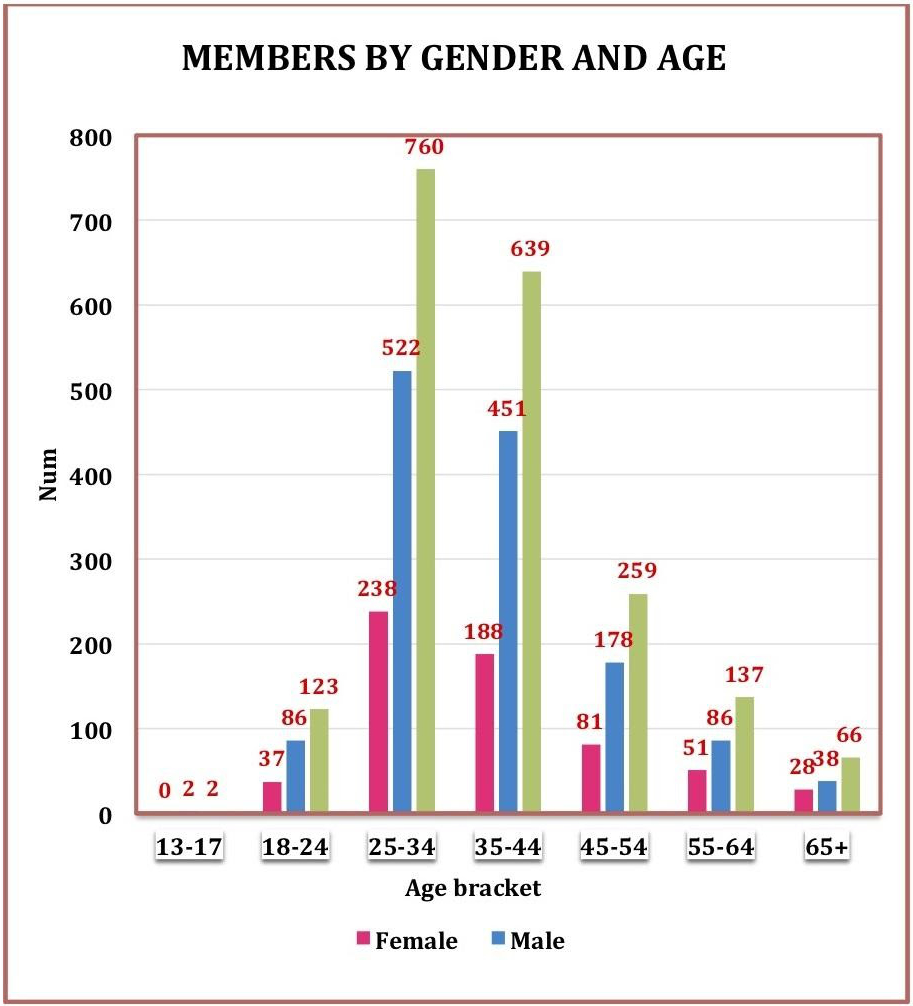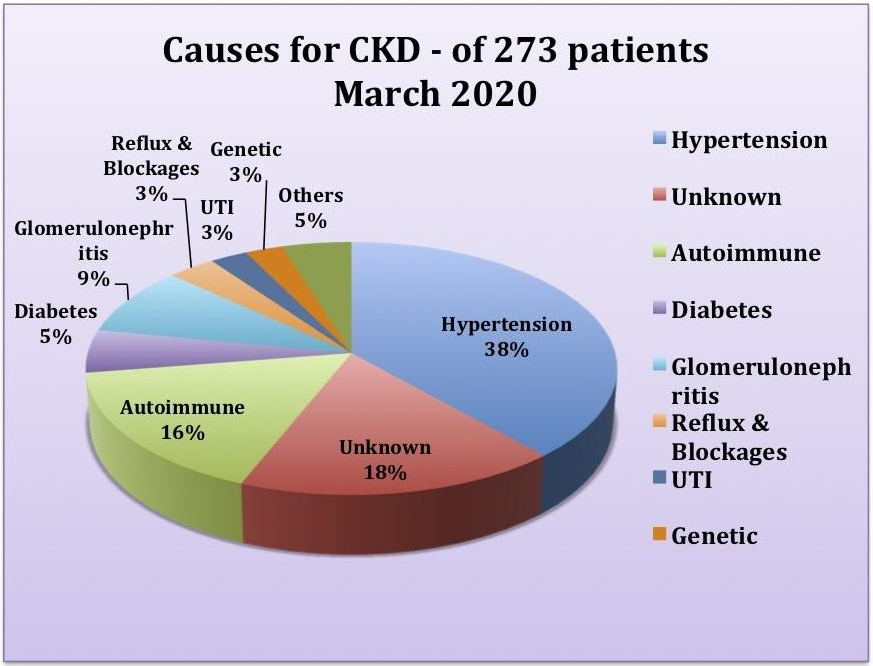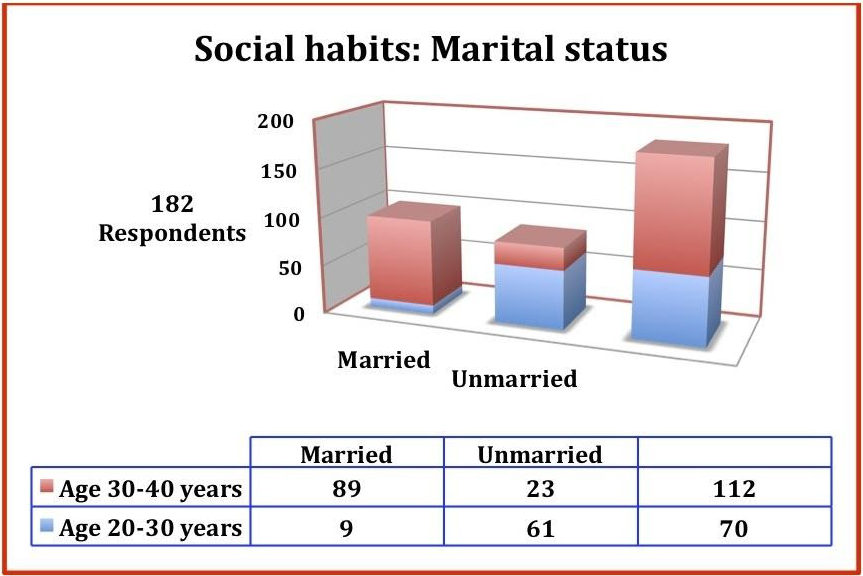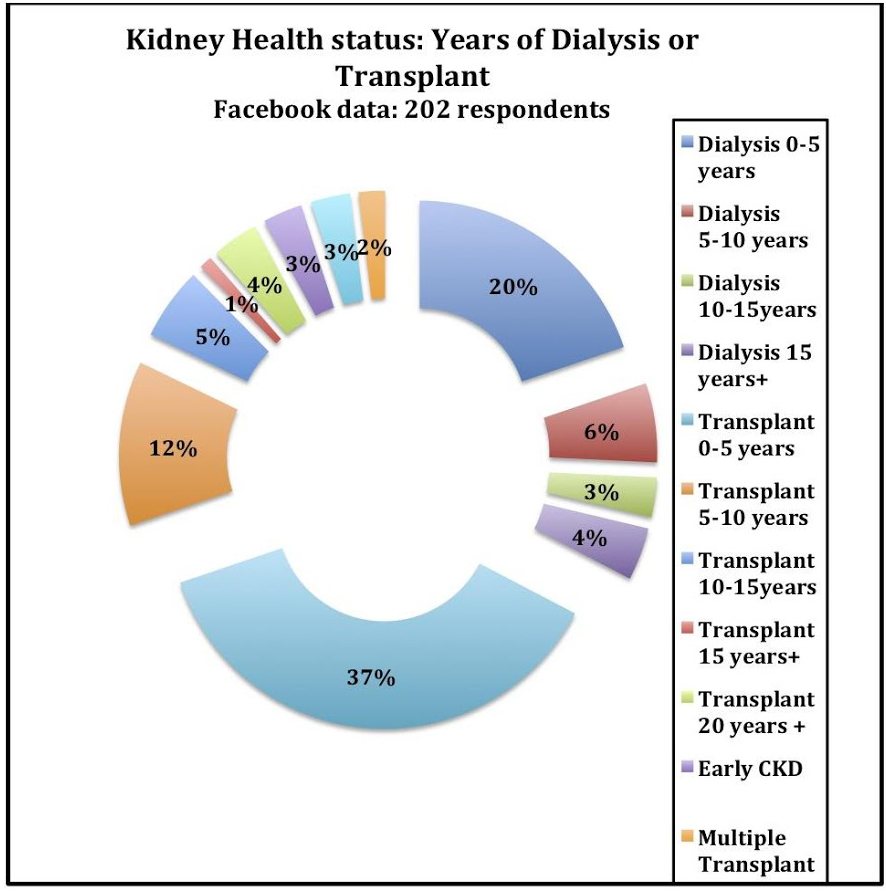Our Foundation attempts to question patients currently engaged in some kidney treatment to arrive at some conclusions. One can safely lay the blame to low awareness of kidney disease and treatments leading to psychological, financial and sociological aspects in defining this population which needs to be published.
Analytical studies conducted by nephrologists and healthcare show that high sodium intake through consumption of packaged food with preservatives have led to Hypertension that is responsible for most cases of kidney diseases. To curtail and manage early detection nephrologists and Government have launched campaigns, such as, “Salt Satyagraha”, “Ek Chammach Kum” and others to limit intake of sodium and sugar, such that future generations may be saved.
Our data on employment and education is not robust for reporting. However one may always assume:
- Patients who come into the disease between 15-20 years, have either abandoned education or managed some basic education. Parental interference or encouragement to stay at home can be the reason for this setback.
- Large section with higher education have left employment while trying to understand, manage their treatments or have been asked to leave their jobs.
- Post transplant, patients take time in resuming their jobs.. Many remain unemployed.
- Instances of people changing career on the pretext of unsafe working conditions also exist.
When people enter our group, many believe they are alone with a disease meant for the aged. They start conversation that says, “I’m so young to have kidney failure.” Realization comes when we conduct our polls. While world was progressing in different ways many realities were unearthed.Skew in our data is justified by social media’s popularity among the young, with a higher male: female ratio, as women are unwilling to disclose due to their fear of social stigma.


One such is the onset of chronic kidney disease due to hypertension at an early age, while a large number with diabetes come in later years. 38% of those participating in the survey are with Hypertension, while Diabetes is only 5% that matches our profile data. Some contributions from those who responded “Unknown” (18%) may fall under Hypertension.


46% unmarried – among 20-40 years.

ALL CONTACTS
- B 504, Vrindavan Co-op Housing Society, Goregaon Link Road, Mulund (W), Mumbai – 400 080
- +91 81082 82100
- kidneywarriors.organisation@gmail.com
SUBSCRIBE
Stay connected with KWF by subscribing to our newsletter for the latest updates and news.
- Copyright © 2020 Kidney Warriors Foundation


Leave a Reply